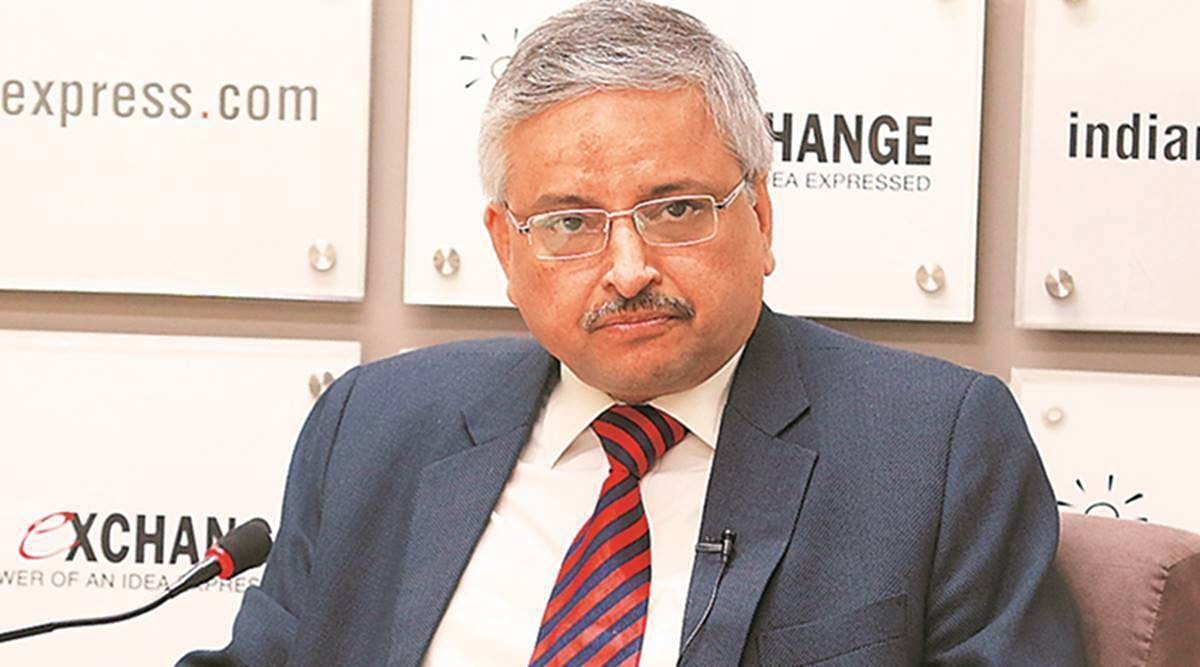News Brief
Covid-19 Vaccines For Children Expected By September, Says AIIMS Chief
- India has vaccinated about 6 per cent of its population with over 40 crore Covid-19 vaccine doses, with the government aiming to vaccinate all adults by the end of 2021.
- But the country is yet to approve a vaccine for children.

Dr Randeep Guleria
The chief of the All India Institute of Medical Sciences (AIIMS), Dr Randeep Guleria, said on July 24 that India was likely to begin vaccinating children against the coronavirus by September this year, adding that it will be a critical step in breaking the chain of transmission.
Since the inoculation of the adult population began around the world including India, the vaccination of children has been a hotly discussed topic.
According to a study published in the journal Nature, mRNA vaccines developed by Pfizer-BioNetch and Moderna, as well as Sinovac and Sinopharm, were tested on children aged 12 and above.
Currently, many countries like the United States, Singapore, Japan and several European nations have already started or approved the jabs to vaccinate those below 18 years.
In India, there are also some vaccines that are in the pipeline and experts believe that children could receive the jabs if the trials show impressive results.
The AIIMS chief said that Zydus Cadila has already completed the studies and is awaiting emergency approval, while Bharat Biotech's Covaxin trials should be completed and we should have received approval by August or September this year and “by that time we should get an approval”.
He also told NDTV: “Pfizer vaccine has been already approved by the FDA (US regulator - Food and Drug Administration). Hopefully, by September, we should start vaccinating children, and that will be a big boost as far as breaking the chain of transmission is concerned."
India has vaccinated about 6 per cent of its population with over 40 crore Covid-19 vaccine doses, with the government aiming to vaccinate all adults by the end of 2021.
But the country is yet to approve a vaccine for children.
According to latest reports, the second dose trial of Bharat Biotech's Covaxin for children aged 2 to 6 years will begin at the Delhi AIIMS by next week.
The participants of Covaxin trials are divided into three groups for the trials: 12 to 18 years old, 6 to 12 years old and 2 to 6 years old.
Separately, Zydus Cadila's trial involving 12 to 18-year-old youngsters has come to an end. The Ahmedabad-based firm has been asked to provide further data in order to obtain emergency use authorization for its plasmid DNA vaccine — which is the first of its kind in the world.
However, the European Medicines Agency (EMA) has approved Moderna's Covid-19 jab for youth aged 12 to 17 on 23 July.
The Pfizer-BioNTech Covid-19 vaccine was approved by the Food and Drug Administration in the United States in May this year for children aged 12 to 15. The list of the countries which have approved or are considering vaccinating children also includes names like Italy, Germany, France, Hungary, Israel, Dubai, Philippines, Chile and Canada — many of these nations have approved Pfizer-BioNTech shots.
Dr Guleria said: "We need to get our own vaccines too — that's why both Bharat Biotech and Zydus are important. Getting the Pfizer vaccine will also be helpful as there is enough data to suggest it's safe... but we can't be sure if we will get the required numbers. We will hopefully have more than one vaccine for children by September."
A study claimed that "living with 11 to 17-year-olds increases the risk of infection by 18-30 per cent". While citing these study findings, Dr Guleria called it an “important issue”.
According to him, vulnerable individuals, such as the elderly or those who are ill, are more likely to contract the infection in such cases.
He said this was one of the reasons why people are concerned about children attending school, as they may contract a mild infection and pass it on to their grandparents.
But he added that “we need more data but this is something that has been shown even with influenza".
According to the latest nationwide serological survey conducted by the Indian Council of Medical Research (ICMR), up to two-thirds of the Indian population over the age of six has already been infected with the novel coronavirus — meaning that they already have antibodies against the SARS-CoC-2 caused disease.
Dr Guleria said: "What is encouraging is the serosurvey this time also looked at the younger population also. There was a lot of worries that children may be vulnerable in the third wave. The survey suggested that even children may have got the infection and to some extent, they're protected."
After children get vaccines, India may be able to completely open its schools by the end of the year, said the AIIMS chief adding that "I personally feel, in a graded manner, physical classes should start”.
He also noted that “a lot of children who don't have access to online classes are suffering. By October, November or end of the year, when children start getting vaccinated, we should be in a position to see schools open fully”.
Introducing ElectionsHQ + 50 Ground Reports Project
The 2024 elections might seem easy to guess, but there are some important questions that shouldn't be missed.
Do freebies still sway voters? Do people prioritise infrastructure when voting? How will Punjab vote?
The answers to these questions provide great insights into where we, as a country, are headed in the years to come.
Swarajya is starting a project with an aim to do 50 solid ground stories and a smart commentary service on WhatsApp, a one-of-a-kind. We'd love your support during this election season.
Click below to contribute.
Latest